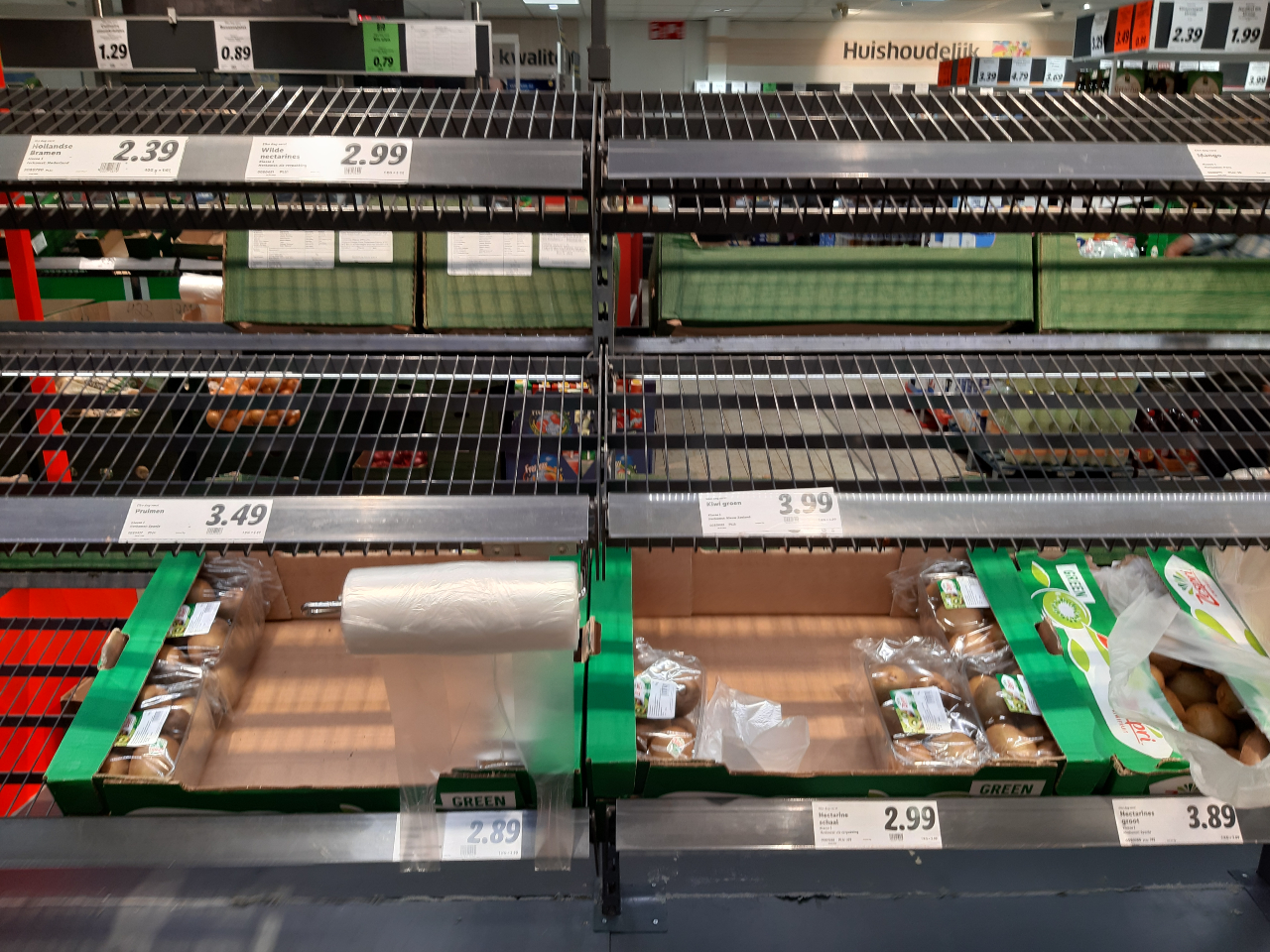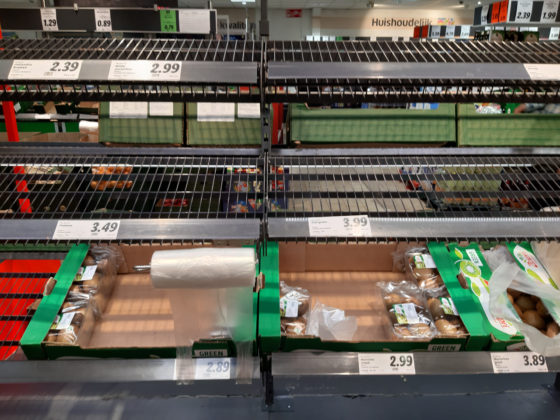Farmers’ blockades ‘will cost supermarkets tens of millions’


Two days of blockades of distribution centres by farmers’ protest groups will cost supermarkets tens of millions, food retailers’ group CBL has warned.
Convoys of tractors blocked delivery lorries from leaving depots at dozens of facilities up and down the country on Monday and Tuesday, in protest at government plans to cut the agriculture sector.
The CBL said much of the fresh produce which was due to be delivered at the start of the week would have to be thrown away and warned it would take several days for the empty shelves in supermarkets to be restocked.
Further demonstrations are expected on Wednesday morning at an Aldi distribution centre in Drachten and Groningen Airport at Eelde in Drenthe.
Most of Tuesday’s blockades ended peacefully after local mayors issued emergency orders to clear distribution facilities in towns including Geldermalsen, Haaksbergen and Raalte.
However, police fired shots at a tractor on the A32 in Heerenveen and arrested three people. Friesland police said the tractor was hit after warning shots were fired as it tried to break through a police line on the slip road to the motorway.
Highways agency Rijkswaterstaat said hay bales were set on fire on the A50 near Apeldoorn, damaging the road surface, while tractors also staged a blockade on the A37 between Hoogeveen and Emmen, Drenthe.
Bridge blocked
Farmers parked around 50 tractors and laid a three-ton mat on a canal bridge in Gaarkeuken, Groningen. The protest lasted until 6pm and stopped around 50 vessels passing through the sluice.
Meanwhile, the government defended the appointment of Johan Remkes as mediator in the dispute with the farmers, arguing his track record as a troubleshooter made him the best candidate for the job.
Protests leaders such as the lobby group Agractie, as well as Caroline van der Plas, MP for the farmers’ party BBB, said Remkes was unsuitable because he chaired a commission that some farmers would have to give up their business to meet government targets on nitrogen pollution – if necessary through compulsory buyouts.
The cuts have been made necessary by a ruling by the Council of State in 2019 that put stricter conditions on the requirement for nitrogen compound emissions, such as ammonia and nitrous oxide, to be cut by 50% by 2030. The agriculture sector is responsible for around 41% of emissions, according to studies by the public health agency RIVM.
European conservation laws limit the amount of nitrogen pollution allowed around listed conservation areas known as Natura 2000 zones. Until 2019 the government had allowed construction firms to offset their emissions if the finished projects were low polluting, but the court ruled these conditional permits were illegal.
Thank you for donating to DutchNews.nl.
We could not provide the Dutch News service, and keep it free of charge, without the generous support of our readers. Your donations allow us to report on issues you tell us matter, and provide you with a summary of the most important Dutch news each day.
Make a donation